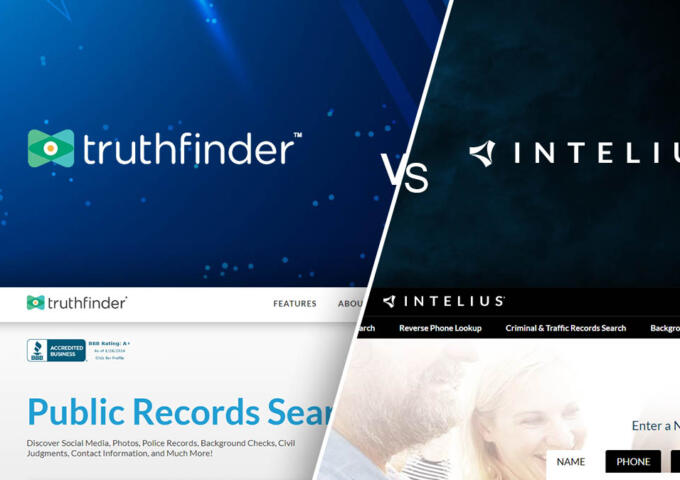Have you ever wondered how to obtain your own or someone else’s arrest record without paying any fees? You may be interested in knowing the legal background of a friend or family member, or you may want to understand your history for personal reasons.
Regardless of the reason, accessing arrest records can be overwhelming, particularly if you’re unsure where to begin. Arrest records contain crucial information about an individual’s legal past; however, obtaining them can be costly and time-consuming.
Fortunately, there’s some good news: various online tools and resources allow you to access arrest history free of charge. If you need more clarification about how to proceed with this process, don’t fret.
This article aims to provide a comprehensive guide to accessing free arrest history. It will delve into the available resources, their advantages and limitations, and effective methods for utilizing them.
So, if you’ve been asking yourself, “How do I acquire free arrest history?” keep reading to discover how you can access this information without spending a single penny.
What Is an Arrest History?
An individual’s arrest history, also called an arrest record, is a written record of their previous interactions with law enforcement which led to being apprehended.
It contains information regarding the person’s involvement with the legal system, such as particulars about the arrest itself, charges brought against them, and any subsequent legal actions. Arrest records are frequently employed in background checks to evaluate an individual’s disposition and past actions.
How to Get Free Arrest History?
Determine the jurisdiction involved if you’re looking for a complimentary arrest record. From there, you can access various online resources, including nationwide, state, and local sources or reputable background check services like BeenVerified, PeopleLooker, TruthFinder, and Intelius.
Should it be necessary, you may need to submit an official request to the appropriate agency. Once in possession of the arrest history information, verifying its accuracy by comparing multiple sources is essential. Remember to handle this information with respect for privacy and use it responsibly and ethically.
Top 4 Tools for Obtaining Arrest History
In the market, numerous tools can be found. Here are some of the highly sought-after ones. It’s important to note that these tools do not have FCRA approval and thus cannot be utilized for activities such as employee or tenant screening where FCRA compliance is necessary.
BeenVerified

BeenVerified is a digital background check platform that gives people the opportunity to access public records, which encompass arrest records. It collects data from a variety of public sources, both at the state and federal levels, in order to generate an all-inclusive report for conducting background checks.
With pricing options beginning at just $29.99 per month for unlimited reports, BeenVerified allows users to search for arrest history by inputting details such as the person’s name, location, and other identifying information. Users can also make use of additional features offered by the platform.
These include checks on criminal and traffic records, verification of employment history, and searches on social media platforms. While complete access requires a subscription fee, a few free searches may be available.
BeenVerified is an invaluable tool for individuals or organizations that require comprehensive background checks and reliable information about someone’s arrest history.
PeopleLooker

PeopleLooker serves as a valuable tool that enables users to gather information about someone’s past arrests by searching and consolidating data from public records sources.
To utilize PeopleLooker’s services, visit their website or download the convenient mobile app compatible with iOS and Android devices. To get started, input the individual’s name and other identifying details such as location, age, or middle initial to ensure good search results.
What distinguishes PeopleLooker from other platforms is its ability to customize searches based on specific information requirements. In this case, you can focus your search on obtaining an individual’s arrest history. Once all the necessary details have been entered, initiate the search.
The resulting report provides crucial particulars, including dates of arrests, charges filed against the person in question, case numbers associated with each charge, as well as legal outcomes or dispositions related to those cases.
If desired for future reference and convenient access whenever needed, you also have the option to download or save this generated report. The pricing structure for this service is approximately $23.99 per month.
TruthFinder

TruthFinder is a remarkably effective online search tool that enables users to retrieve public records, specifically for acquiring details about past arrests. It provides users access to extensive sources containing public records from multiple sources, including criminal and traffic records, court documents, and police reports.
This platform offers limited free searches before prompting users to subscribe for full access. Subscription plans start at $28.05 monthly and provide unlimited reports covering arrest history information.
In addition to its valuable arrest history data, TruthFinder offers extra features like reverse phone number lookup, email address search subscription plans, and a dark web add-on. TruthFinder is an invaluable resource for individuals searching for public records that encompass arrest history information.
DISCLAIMER: You may not use TruthFinder or the information it provides to make decisions about consumer credit, employment, insurance, tenant screening, or any other purpose that would require FCRA compliance. TruthFinder does not provide consumer reports and is not a consumer reporting agency. (These terms have special meanings under the Fair Credit Reporting Act, 15 USC 1681 et seq., (“FCRA”), which are incorporated herein by reference.)”
Intelius

To retrieve an individual’s arrest history through Intelius, users can commence a name search on the platform and review the results. Intelius will search its database for relevant public records, including court documents and police reports, which may contain information about the person’s previous arrests.
Employing Intelius’s services enables users to conduct background checks on individuals as part of their due diligence process, particularly when establishing connections with new acquaintances through online dating applications or social media platforms.
By conducting a background check before meeting face-to-face, users can gain insight into any prior criminal activities or potential red flags that may be pertinent to their interactions with the individual.
This empowers them to make better-informed decisions regarding their safety and well-being. Intelius offers various subscription options tailored to the diverse needs of its users.
It provides unrestricted access to search reports on individuals and capabilities for phone and email address lookups, criminal and traffic records, and court documents. The monthly subscription costs $24.86, while the bi-monthly option costs $21.13 every two months.
Furthermore, Intelius places a premium on the relevance of its data and consistently updates its sources to ensure users have access to the most up-to-date information available.
DISCLAIMER: You may not use Intelius or the information it provides to make decisions about consumer credit, employment, insurance, tenant screening, or any other purpose that would require FCRA compliance. TruthFinder does not provide consumer reports and is not a consumer reporting agency. (These terms have special meanings under the Fair Credit Reporting Act, 15 USC 1681 et seq., (“FCRA”), which are incorporated herein by reference.)”
Reasons for Obtaining Arrest Records
There are several reasons why someone may desire to acquire an arrest record, including:
- Ensuring Personal Safety: Accessing arrest records can aid individuals in safeguarding themselves and their loved ones by providing insight into an individual’s previous interactions with law enforcement, thus he lping them avoid potential risks.
- Informed Decision-Making in Relationships: Awareness of a person’s arrest history empowers individuals to make informed choices regarding personal and professional relationships, including friendships, romantic involvements, or business associations.
- Employment & Tenant Screening: Employers and landlords utilize arrest records to vet potential employees and tenants, ensuring a secure environment and making informed decisions about who they permit access to their premises or workplaces. It’s crucial to utilize only FCRA-approved services for screening employees and tenants.
- Legal & Financial Transactions: Understanding an individual’s arrest history can offer valuable insights during legal and financial dealings, such as business partnerships and investments, thereby mitigating potential risks or disputes.
How Arrest History Is Vital for Background Checks?
The inclusion of arrest records in background checks serves several vital purposes. By examining an individual’s arrest history, a deeper insight into their previous encounters with law enforcement can be gained, allowing for the identification of possible warning signs or concerns. Understanding why arrest history is essential to conducting thorough background checks is crucial.
Safety & Security
Examining an individual’s arrest record can assist in identifying potential threats to the well-being and protection of others. This data holds particular significance for individuals engaged in community activities, social groups, or volunteer work with vulnerable populations like children, the elderly, or individuals with disabilities.
Legal Compliance
Some professions necessitate background checks, which may involve examining one’s arrest history to adhere to federal, state, or local laws. For instance, those employed in childcare, education, and healthcare might need a comprehensive background check that encompasses their arrest records.
Verification of Information
Having a record of an individual’s arrests can be a valuable tool in validating the accuracy of the information they provide. This record can be crucial in verifying or disproving their claims, promoting transparency and integrity when making decisions.
Identifying Patterns of Behavior
Analyzing a person’s past arrests can uncover behavioral patterns, including recurring offenses or participation in certain crimes. This data can offer valuable insights into an individual’s character and aid decision-makers in assessing whether they have shown personal growth or still pose a potential risk.
Revealing Undisclosed Information
Disclosing previous arrests is something that individuals should avoid doing on their social media profiles or in personal conversations. When conducting a background check, arrest history can be discovered, offering a more precise depiction of an individual’s background.
Handling arrest history information responsibly and ethically is crucial, ensuring that discrimination does not occur solely based on someone’s arrest records.
Additionally, it’s important to recognize such records’ limitations and potential inaccuracies and incorporate them with other sources when making informed decisions.
Federal & State Regulations on Arrest Records
Arrest records are governed by federal and state regulations, which encompass:
Freedom of Information Act (FOIA)
The Freedom of Information Act (FOIA) is a federal statute permitting public requests for various government records, including arrest records. Nevertheless, certain exemptions exist, such as for sensitive or confidential records, which may lead to denial of access by the government agency.
State-Specific Regulations & Laws
State-specific regulations and laws dictating the accessibility of arrest records. Variations exist among states, with some granting public access while others imposing restrictions on certain record types or limiting access to specific entities.
Familiarizing oneself with state laws is crucial for understanding rights and restrictions regarding access to arrest records.
Privacy Concerns & Limitations
Privacy concerns and limitations are significant factors in arrest record accessibility. Despite being categorized as public information, arrest records may contain sensitive personal details, like social security numbers or medical information.
Government agencies might redact or withhold specific information to safeguard individuals’ privacy. Furthermore, individuals may seek to restrict access to their arrest records to preserve their reputation.
However, it’s essential to acknowledge that arrest records could still be utilized in specific contexts, such as background checks or legal proceedings.
Online Resources for Free Arrest History
Several online platforms offer free access to arrest history details. Here are a few examples:
National Databases
- National Instant Criminal Background Check System (NICS): Managed by the FBI, this system is primarily used for firearm transaction background checks. While not directly open to the public, certain information may be accessible through licensed firearm dealers.
- Federal Bureau of Prisons (BOP) Inmate Locator: This online tool permits users to search for current federal inmates or those released since 1982. It provides basic details like the inmate’s name, register number, and release date.
State & Local Databases
- State Police Websites: Many state police departments offer criminal history data, including arrest records, via their official websites. Access might be restricted depending on the requester’s purpose or connection to the individual in question.
- County Sheriff’s Offices: Certain county sheriff’s offices maintain online databases to search local arrest records. These typically include the arrestee’s name, booking number, and charges.
- Local Law Enforcement Websites: Some city or local law enforcement agencies provide access to arrest records online through searchable databases or updated lists of recent arrests.
How to Request Free Arrest Records?
Suppose you want to acquire your personal or another person’s arrest records. In that case, two options are available: contacting the relevant agency or utilizing an online tool.
The following steps should be followed in either case:
Identifying the Appropriate Agency or Tool
- Determine the appropriate jurisdiction (local, county, state, or federal) where the arrest occurred or where the individual resided at the time of arrest.
- Utilize online sources like national databases, state and local databases, and tools such as BeenVerified, PeopleLooker, TruthFinder, or Intelius for research.
Preparing a Request Letter (If Necessary)
- When the desired information is not accessible online or through third-party tools, compose a letter to request the arrest records.
- Include pertinent information such as the individual’s complete name, date of birth, and any known aliases.
- Adhere to any specific guidelines outlined by the contracted agency.
Submitting the Request
- Send the request letter via mail or email address, or deliver it in person, based on the agency’s stipulations.
- Certain agencies may charge a nominal fee for processing the request or providing copies of the arrest records. Be prepared to cover these expenses if required.
- Retain a copy of the request and any correspondence with the agency for documentation.
Following Up on the Request
- In the event of waiting for a response within a reasonable timeframe (typically 2-4 weeks), follow up with the agency to inquire about the status of your request.
- Maintain a courteous and professional demeanor in your communication, as this can facilitate the process and ensure a prompt response.
- Should you encounter any obstacles or delays, consider seeking assistance from a legal representative or a non-profit organization specializing in public records access.
Verifying Arrest History Information
Before utilizing arrest history information for any purpose, ensuring its accuracy is crucial. Here are a few measures to take when verifying such information:
Cross-Referencing Multiple Sources
- For accuracy in arrest history data, cross-check information across multiple sources, including national sources, state and local sources, and online tools like BeenVerified, PeopleLooker, TruthFinder, or Intelius.
- Verify details such as names, dates, and locations to ensure coherence.
- Remember that different sources may provide differing levels of detail, necessitating consultation with several sources for a comprehensive understanding.
Understanding Limitations & Inaccuracies
Please note that the information regarding arrest history may have inaccuracies, outdated details, or incomplete data due to clerical errors or delays in updating records. It’s essential to understand that arrest records might not always provide the outcome of a case, such as whether charges were dismissed or if the individual was found innocent.
Acknowledging that the absence of an arrest record does not automatically imply that a person has never been arrested is crucial. It could mean the record is inaccessible to the public or has been expunged or sealed.
Respecting Privacy & Ethical Considerations
- Handle arrest history data with care and integrity, utilizing it for legitimate purposes like personal safety, informed decision-making, or legal and financial matters.
- Avoid using arrest records to harass, discriminate, or unfairly assess individuals based on their previous interactions with law enforcement.
- Acknowledge the privacy rights of individuals and adhere to all relevant laws and regulations when obtaining and disseminating arrest history details.
Conclusion
In summary, acquiring records of past arrests can be a valuable asset for conducting background checks or research. There are various free resources to access arrest history information, such as national databases, state-specific websites, and reputable online platforms like BeenVerified, PeopleLooker, TruthFinder, and Intelius.
Nonetheless, it’s imperative to exercise responsible and ethical use of this data since it can potentially affect an individual’s privacy and reputation. It’s crucial to remember that arrest records may have limitations and inaccuracies; therefore, they should always be verified through multiple sources.
Remaining well-informed and vigilant while utilizing arrest history information and appropriate tools will result in more detailed and conscientious decision-making.
All product names, logos, brands, trademarks and registered trademarks are property of their respective owners.
DISCLAIMER: You may not use the non-FCRA approved services mentioned in this article or the information they provide to decide about consumer credit, employment, insurance, tenant screening, or any other purpose that would require FCRA compliance. These services don’t provide consumer reports and are not consumer reporting agencies. (These terms have special meanings under the Fair Credit Reporting Act, 15 USC 1681 et seq., (“FCRA”), which are incorporated herein by reference.)
The information available on our website may not be 100% accurate, complete, or up to date, so do not use it as a substitute for your own due diligence, especially if you have concerns about a person’s criminal history. The services we mention do not make any representation or warranty about the accuracy of the information available through our website or about the character or integrity of the person about whom you inquire. For more information, please review each service’s Terms of Use.






Leave a Reply Cancel reply